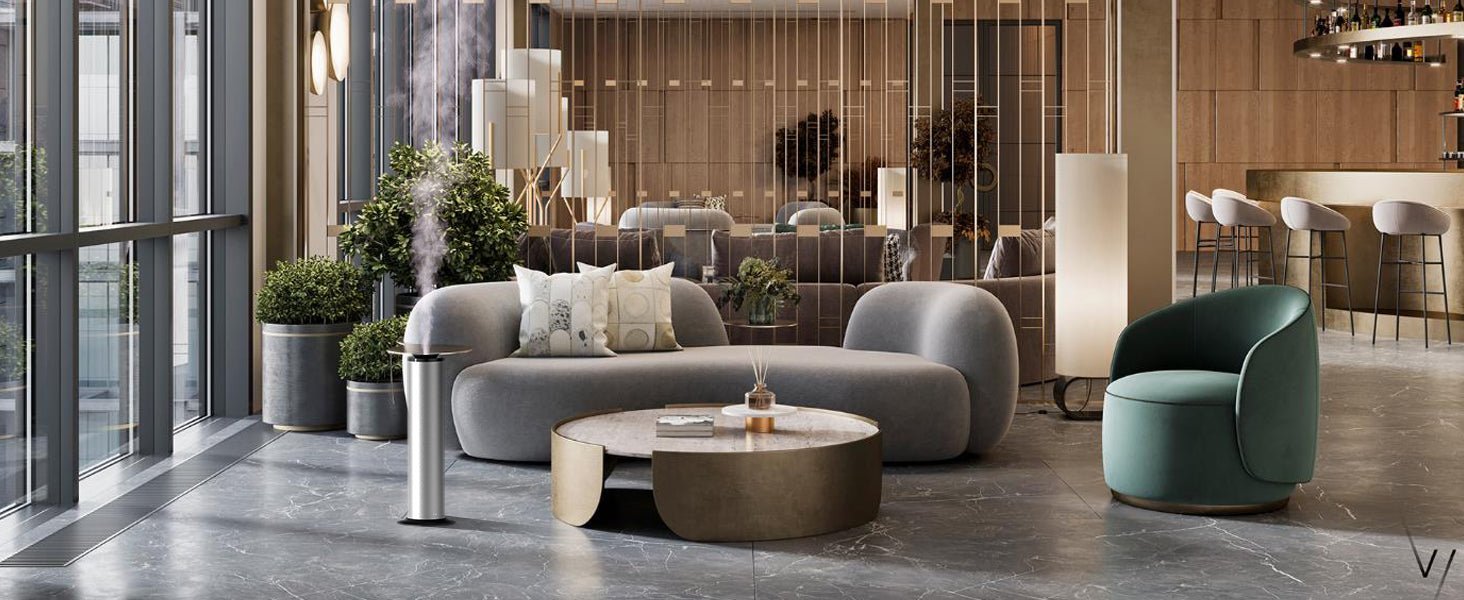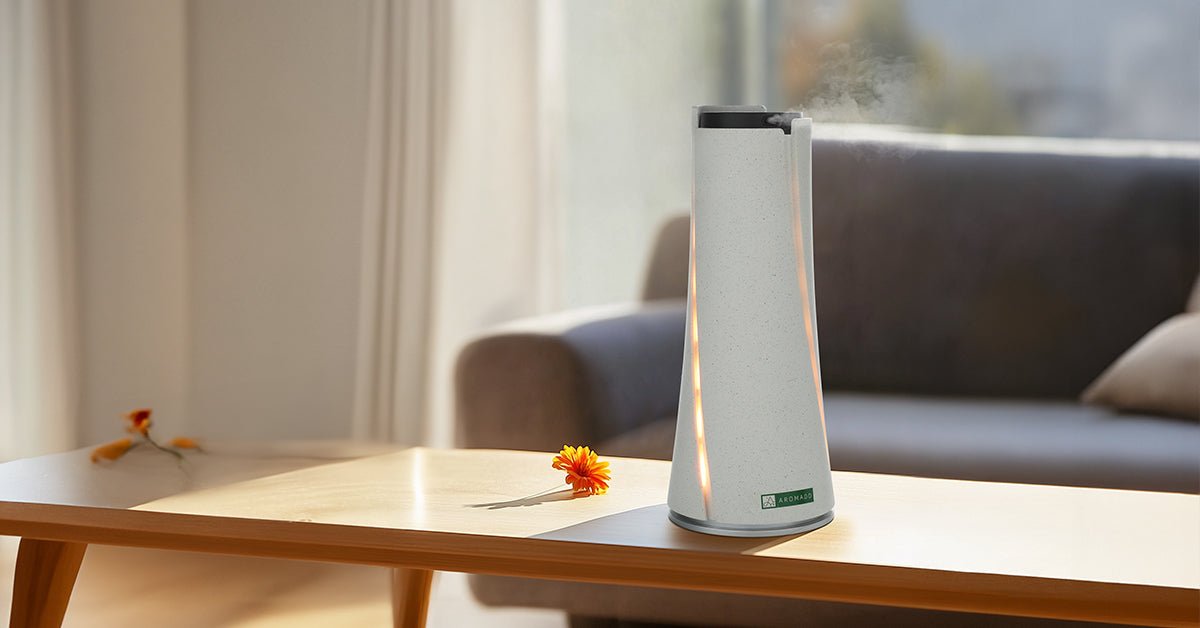Article: How Can Hotels Use Diffusers to Enhance Guest Experience?

How Can Hotels Use Diffusers to Enhance Guest Experience?
In the highly competitive hotel industry, guest experience is a key factor in determining brand loyalty and reputation. In addition to high-quality services and facilities, more and more hotels are focusing on "sensory experiences," and diffusers have become a secret weapon to elevate this experience. By creating a unique aromatic environment, diffusers not only enhance guest comfort but also infuse the hotel brand with a distinctive memory point. This article delves into the value of diffusers in hotels, their application scenarios, selection considerations, and supporting solutions to help hotel managers create unforgettable guest experiences.
1. The Role of Diffusers
Creating a Comfortable Atmosphere
Scent is a significant factor influencing emotions and perceptions. Research shows that specific fragrances can make people feel relaxed, happy, or energized. By using diffusers in areas such as lobbies and guest rooms, hotels can create a warm and welcoming atmosphere, making guests feel at home from the moment they step into the hotel.
Improving Indoor Air Quality
Hotel spaces are often enclosed and experience high foot traffic, which can lead to odors or air quality issues. Diffusers not only release pleasant scents but also purify the air through the natural components of essential oils, eliminating odors and enhancing the overall freshness of the environment.
Enhancing Sensory Experiences
Scent is an integral part of the sensory experience. Through carefully designed fragrance programs, hotels can create unique memory points for guests, associating a specific scent with the hotel brand, thereby increasing brand recognition and guest loyalty.
2. Application Scenarios for Diffusers
Lobbies and Public Areas
The lobby is the first impression guests have of a hotel. By using diffusers in the lobby, hotels can create a high-end, elegant atmosphere. For example, woody scents (such as cedar or sandalwood) convey a sense of luxury, while citrus scents (such as lemon or sweet orange) bring a fresh and vibrant feeling.
Guest Rooms and Suites
Guest rooms are where guests spend the most time, making scent selection particularly important. Relaxing scents (such as lavender or chamomile) can help guests unwind and improve sleep quality, while refreshing scents (such as peppermint or eucalyptus) can invigorate and are ideal for morning use.
Meeting Rooms and Restaurants
In meeting rooms, diffusers can enhance focus with invigorating scents (such as rosemary or lemon). In restaurants, fragrances should complement the cuisine, such as using oceanic scents in seafood restaurants or vanilla and caramel scents in cafes to enhance the dining experience.
3. Considerations for Choosing Diffusers
Fragrance Types and Scents
-
Classic Scents: Such as lavender, lemon, or peppermint, suitable for most scenarios and less likely to go wrong.
-
Custom Scents: Tailored fragrances can be designed to align with the hotel's brand positioning, enhancing brand recognition.
Noise and Energy Consumption
-
Quiet Design: Choose low-noise diffusers to avoid disturbing guests.
-
Energy Efficiency: Prioritize energy-efficient devices to reduce long-term operational costs.
Appearance and Size
-
High-End Aesthetics: The diffuser's design should match the hotel's decor, elevating the overall ambiance.
-
Space Compatibility: Select the appropriate device size based on the area to ensure even fragrance diffusion.
4. How to Use Diffusers Effectively
Timing and Automatic Control
By setting timers, diffusers can operate automatically during specific periods, such as turning on before guest check-in or running continuously during restaurant hours. Smart control systems can also adjust operation modes based on foot traffic or air quality.
Concentration and Spray Frequency
Excessive fragrance concentration may cause discomfort, while insufficient concentration may go unnoticed. It is recommended to adjust the concentration and spray frequency based on the area size and functional needs to ensure a balanced and lasting scent.
Maintenance and Care
Regularly clean the diffuser to prevent essential oil residue from affecting performance. Choose devices that are easy to disassemble and clean to reduce maintenance costs and extend lifespan.
5. Supporting Facilities for Diffusers
Dedicated Essential Oils
Choose high-quality essential oils to ensure pure and long-lasting fragrances. Scents can be changed according to seasons or holidays, such as warm vanilla tones in winter and fresh oceanic scents in summer.
Fragrance Diffusion Devices
Select appropriate diffusion devices based on the hotel's space size. For example, use high-capacity devices in lobbies and compact devices in guest rooms to ensure even fragrance coverage.
Centralized Control Systems
Through centralized control systems, hotels can manage all diffusers uniformly, monitor their status in real-time, and adjust fragrance programs as needed. This not only improves management efficiency but also ensures a consistent scent experience.
Conclusion
Diffusers are not just tools to enhance guest experiences but also powerful means to shape a hotel's brand image. Through scientific fragrance programs and professional device selection, hotels can create unique sensory memories for guests, strengthening brand recognition and loyalty. Whether in lobbies, guest rooms, or restaurants, diffusers can breathe soul into hotel spaces, making every stay an unforgettable experience.

Leave a comment
This site is protected by hCaptcha and the hCaptcha Privacy Policy and Terms of Service apply.